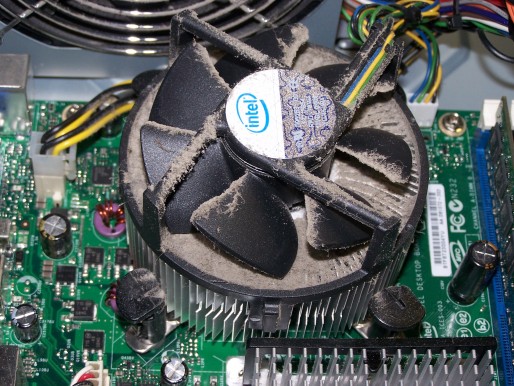Heat reduction is a priority, not only for average users but also veteran overclockers. Overclocked machines typically run at higher operating frequency and this will result in higher speed. We could perform a simple task by boosting the frequency from the stock 2GHz to 2.2GHz or 2.4GHz and we could easily see on the temperature monitor that our machine is experiencing accumulated heat. Some unusual PC configurations could actually gain 50 percent improvement in performance, but this would require us to deal with the excess heat. Overclocking is a preferred way to gain free or affordable performance boost, but this could result in degraded stability. The single most important factor in ensuring improved stability is by reducing the temperature whenever possible. It is usually important to keep the heat of our processor to a minimum, especially if we are using powerful processor, graphics cards, power supply and hard drives. Other components, like motherboard and optical drives don’t generate much heat, but they could also be affected by accumulated heat.
It should be noted increase in heat is a gradual process and it could happen even if we clean our computer gradually. In this case, we may need to consider purchase a new cooling solution. The heat could become so severe that our hard drive dies first and this could be a more serious condition than the death of processor or even motherboard, because we could lose so much valuable data that some of them we can never recover and replace. Recovering essential data is much more difficult than trying to replace a processor. If we don’t plan to get new cooling system, then it is necessary to dust our computer, so it is important for us to come up with a solid plan. We could look for a used rage, while fine brush and a couple of compressed air cans could be available for less than $10 in various stores. The first we need to do is to unplug the computer and ground ourselves to discharge ourselves of static electricity. We could do this by touching a metal chair or the metal parts of the computer case itself.
We shouldn’t damage anything inside our computer if we do things properly. We should also make sure that our hand is completely dry and we need to be particularly gentle when working with our computer. The interior of our computer is typically quite delicate, although they are not so brittle, that we need to be overly careful. However, there are a few things inside our computer that are extremely delicate, such as those tiny pins found on various sockets, such as hard drives, optical drives and computers. When working with these delicate components, we should rely only on compressed air cans. It is a bad idea to use used rags, because some loose threads could get snagged in one of these pins, causing them to bend slightly, which is enough to cause it difficult or impossible to reconnect the components.



























